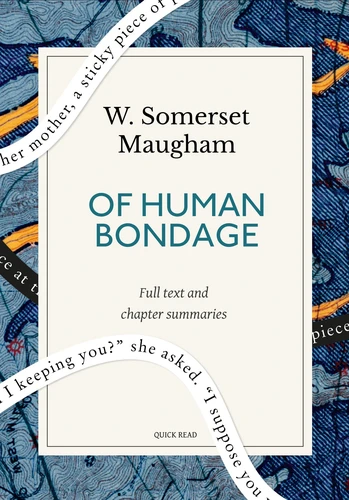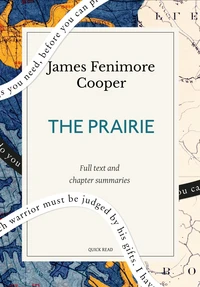Of Human Bondage: A Quick Read edition
Par : ,Formats :
Disponible dans votre compte client Decitre ou Furet du Nord dès validation de votre commande. Le format Multi-format est :
- Pour les liseuses autres que Vivlio, vous devez utiliser le logiciel Adobe Digital Edition. Non compatible avec la lecture sur les liseuses Kindle, Remarkable et Sony
 , qui est-ce ?
, qui est-ce ?Notre partenaire de plateforme de lecture numérique où vous retrouverez l'ensemble de vos ebooks gratuitement
Pour en savoir plus sur nos ebooks, consultez notre aide en ligne ici
- FormatMulti-format
- ISBN978-2-38582-269-9
- EAN9782385822699
- Date de parution24/04/2024
- Protection num.NC
- Infos supplémentairesMulti-format incluant ePub sans ...
- ÉditeurQuick Read
Résumé
Discover a new way to read classics with Quick Read.
This Quick Read edition includes both the full text and a summary for each chapter.
- Reading time of the complete text: 1 day
- Reading time of the summarized text: about 2 hours
"Of Human Bondage" is a 1915 novel by W. Somerset Maugham, considered his masterpiece and partly autobiographical. The plot follows Philip Carey, an orphan with a club foot, through his struggles and relationships.
The title is derived from Spinoza's Ethics, reflecting the theme of emotional enslavement. Maugham's personal experiences, such as his stammer and early loss of parents, are reflected in the protagonist. The novel also delves into art, with references to renowned painters and their works. "Of Human Bondage" has been adapted into TV and film, with various notable actors portraying the characters. The story's impact is evident in popular culture, with references in films like "Spider-Man: Homecoming." Overall, the novel is a compelling exploration of human emotions, relationships, and the pursuit of contentment.
The title is derived from Spinoza's Ethics, reflecting the theme of emotional enslavement. Maugham's personal experiences, such as his stammer and early loss of parents, are reflected in the protagonist. The novel also delves into art, with references to renowned painters and their works. "Of Human Bondage" has been adapted into TV and film, with various notable actors portraying the characters. The story's impact is evident in popular culture, with references in films like "Spider-Man: Homecoming." Overall, the novel is a compelling exploration of human emotions, relationships, and the pursuit of contentment.
Discover a new way to read classics with Quick Read.
This Quick Read edition includes both the full text and a summary for each chapter.
- Reading time of the complete text: 1 day
- Reading time of the summarized text: about 2 hours
"Of Human Bondage" is a 1915 novel by W. Somerset Maugham, considered his masterpiece and partly autobiographical. The plot follows Philip Carey, an orphan with a club foot, through his struggles and relationships.
The title is derived from Spinoza's Ethics, reflecting the theme of emotional enslavement. Maugham's personal experiences, such as his stammer and early loss of parents, are reflected in the protagonist. The novel also delves into art, with references to renowned painters and their works. "Of Human Bondage" has been adapted into TV and film, with various notable actors portraying the characters. The story's impact is evident in popular culture, with references in films like "Spider-Man: Homecoming." Overall, the novel is a compelling exploration of human emotions, relationships, and the pursuit of contentment.
The title is derived from Spinoza's Ethics, reflecting the theme of emotional enslavement. Maugham's personal experiences, such as his stammer and early loss of parents, are reflected in the protagonist. The novel also delves into art, with references to renowned painters and their works. "Of Human Bondage" has been adapted into TV and film, with various notable actors portraying the characters. The story's impact is evident in popular culture, with references in films like "Spider-Man: Homecoming." Overall, the novel is a compelling exploration of human emotions, relationships, and the pursuit of contentment.























